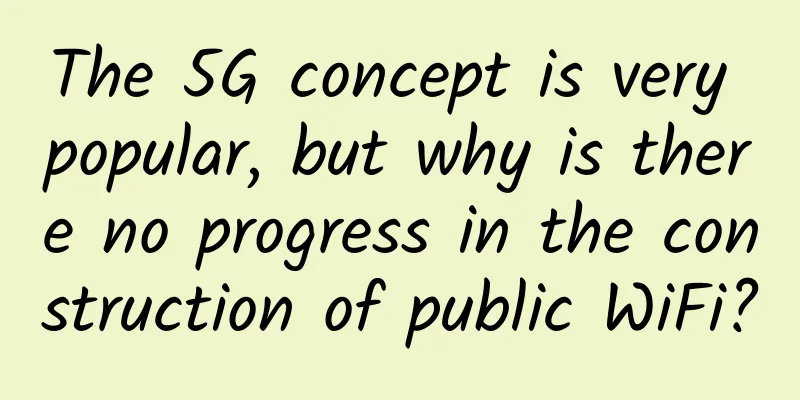Horizontal comparison of NB-IoT technologies of the three major operators in terms of infrastructure construction, ecosystem construction, application expansion, and tariff competition

|
In the blink of an eye, we have entered 2018. In the past few years, especially in 2017, the development and application of IoT technology have changed with each passing day. In addition to telecom operators represented by China Telecom and enterprises represented by Huawei, which continue to strongly promote NB-IOT, China Mobile and China Unicom have also begun to intervene strongly. Compared with 4G technology and even the 5G technology in the near future, NB-IoT has great advantages in terms of the number of connections, signal coverage depth, power consumption, etc. Moreover, with the official effect brought by the Ministry of Industry and Information Technology's support document, NB-IoT has much greater development space and imagination space. On the whole, it can even be said to be a revolutionary technology.
As the only three players in the operator field, naturally no one wants to miss this piece of cake. Especially after China Mobile’s dominance in the 4G era, facing this new trend, the three companies have launched fierce competition in many fields such as infrastructure construction, ecosystem construction, application expansion, and tariff competition, which is mainly reflected in the following aspects: 1. Infrastructure China Telecom used its 800M LTE network to build the world's most extensive NB-IoT network in 2017, with a total number of base stations reaching an astonishing 310,000, which means that full coverage can be achieved in most parts of the country. China Mobile has also completed the deployment and construction of the first batch of 146,000 NB-IoT base stations. In particular, in June 2017, the Ministry of Industry and Information Technology issued an announcement stating that on the allocated GSM or FDD IMT system frequency bands, operators can choose to deploy NB-IoT systems in in-band working mode, protection band working mode, and independent working mode as needed. This is great news for China Mobile, which has not obtained an FDD license, because with the abundant GSM900 frequency band, it can be predicted that China Mobile's construction speed in NB-IoT will reach a new stage in 2018. China Unicom is certainly not to be outdone. Although it is a little behind China Mobile and China Telecom, it has already deployed commercial NB-IoT solutions in key cities for trial use, and more than 300 cities have the ability to quickly access NB-IoT networks. At the same time, China Unicom has also opened eMTC test networks in Beijing, Guangdong and other regions, meeting the conditions for trial use. 2. Ecosystem construction China Mobile took the lead in launching the China Mobile IoT open platform on its official website. In addition to detailed development documents, there are also community discussions with a strong technical atmosphere. In some well-known EE forums on the Internet, technical discussions about China Mobile are also very heated. China Mobile, which mainly adopts an independent development strategy, provides more than 30 private network APIs on the connection management platform for customers and developers to use. China Telecom established an Internet of Things branch as early as 2009. In China Telecom's Internet of Things open platform, highlights such as B2B2C services, real-time monitoring, direct integration with business systems, data services and cost management have become important factors in attracting developers. While moving towards internationalization, China Unicom has also launched a new generation of connection management platform. Its selling points are more powerful data analysis and automation capabilities, more reliable security protection measures, and more flexible partner business operation capabilities. Although it does not have an advantage in frequency band resources, it is also making up for it with its ecological construction. 3. Partners As the big brother of the 4G era, China Mobile is naturally the darling of the NB-IoT era. It not only has solution partners such as Xingyuan Instrument and Xigu Gulian, but also SaaS partners such as Neusoft and iSoftStone Applications, as well as hardware terminal partners such as Qualcomm, HiSilicon, and RDA. Combined with China Mobile's consistent style of not being short of money, its large-scale and comprehensive development plan is reasonable. China Unicom has close cooperation with operators such as Deutsche Telekom, Hong Kong Telecom, Bell Canada, KLM, and Taiwan Mobile, aiming directly at the global IoT service market, which is a unique approach. Of course, Unicom also has strategic partnerships with hardware giants such as Cisco, Lenovo, and Qualcomm. From this point of view, Unicom still has a good chance of winning the NB-IoT battle. China Telecom is naturally on the same front as Huawei, the domestic NB-IoT leader. On this basis, the concepts of "product integration, channel linkage, and achievement sharing" have added a lot of points to China Telecom. 4. Price competition In terms of tariffs, one thing that cannot be ignored is China Telecom. Its amazing package plan that costs only 105 yuan for 8 years has certainly attracted a lot of attention. Against the backdrop of faster speeds and lower fees in the traditional communications market, and given the low-cost advantage of the emerging NB-IoT technology itself, China Mobile has launched special subsidies and special promotions. Although China Unicom has not released any specific information, the domestic and international concept of charging by connection points rather than traffic volume should not change. 5. Application areas In fact, whether it is the Internet of Things or NB-IoT, in the final analysis, the greatest value lies in the "Internet of Everything" changing our lives. Therefore, the various solutions that have been implemented are the greatest value of NB-IoT, and are also the core competitiveness and long-term development potential of the three major operators. In the development of China Mobile in recent years, it has been involved in smart water meters, gas meters, smart agriculture, livestock and fishery monitoring, etc., among which vehicle information monitoring and remote management system are the highlights. After all, we all know that automotive electronics is a sub-field with a higher threshold in all electronic fields, but it is also a field with huge development potential. The reason why the Internet of Things is so optimistic is largely due to the huge potential and prospects of the Internet of Vehicles. China Telecom has outstanding performance in public utilities, smart logistics, smart home, smart retail, medical health and other fields. The latter two are favored by countless practitioners. Since Alibaba proposed the concept of new retail, it has set off a bloody storm in the retail market. Everyone has greater expectations for the combination and collision of the Internet of Things and new retail. The medical health field has always had a huge market. To put it in an extreme way, if Telecom can eat the big cake of medical intelligence, it will be invincible. On the other hand, China Unicom's first pilot project in Shanghai was smart fire protection, and it has since delved into smart water services, smart parking, smart homes, smart wearables and other sub-sectors without slowing down its pace of development. The global Internet of Things is developing rapidly. As a rising power, China naturally does not want to miss this wave of technology boom. Although China Mobile, China Telecom and China Unicom are competitors, they have all shown their firm determination to develop NB-IoT technology. Appropriate internal competition is of great benefit to developers and consumers. According to authoritative organizations, the global market of NB-IoT will reach 42 billion US dollars in 2020. Looking at the world, no one can ignore this market with huge potential. I hope that by then, the three major operators in my country can get a share of the pie and become technology leaders. |
<<: China Minsheng Bank and Huawei reach strategic cooperation to jointly build a digital smart bank
>>: In the 5G era, what kind of data center do operators need?
Recommend
RackNerd: $16.5/year KVM-1.5GB/20GB/3TB/Los Angeles MC Data Center
A few days ago, I shared a list of LETs, and Rack...
What is the difference between a wireless router and an optical modem? This article tells you
When we deploy a WiFi network at home, there are ...
Let’s not talk about technology, but business scenarios: Huawei’s fully cloud-based network enables digital transformation
[Original article from 51CTO.com] At the recently...
Hostio: €5/month KVM-2GB/25GB/5TB/Netherlands data center
Hostio is a foreign hosting company founded in 20...
Introduction to SDN Controller
1. Introduction to SDN and controller SDN (Softwa...
If 4G construction is "building roads", 5G is actually "building cities"...
"Now that I'm using 5G, I don't thin...
Tencent Cloud Lightweight Server Special, 2C2G4M Lightweight Server starting from 65 yuan/year
Tencent Cloud recently launched a limited-time sp...
A brief history of computer networks
The development of computer networks has come a l...
Regarding 2G network withdrawal, this article can be said to be very comprehensive
The withdrawal of 2G network is actually not a ne...
As 5G private network applications enter deep waters, how can we achieve the goal of going from 1 to N?
At present, the 5G competition has entered the se...
JuHost: Hong Kong Kowloon VPS 40% off from $2.99/month, 1G memory, 20G SSD, 100M bandwidth
JuHost has currently updated the regular 40% disc...
13 departments: Develop intelligent manufacturing using cloud computing, 5G, big data and other technologies
According to the website of the National Developm...
How many hurdles does industrial digital transformation have to overcome? Wind River provides a cost-effective option that integrates the old and the new
[51CTO.com original article] "It's time ...
The New Year season is coming and the hidden power of routers is unlocked
Wireless routers have entered thousands of househ...
The dilemma of contemporary 5G users: From being 5G to returning to 4G, we should slow down
If the elderly are the ones abandoned by the Inte...









